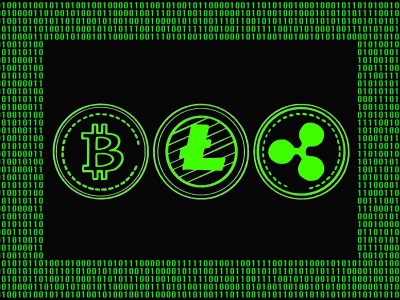As the COVID-19 pandemic seems to finally be coming to a close, it’s an important time to talk about the few silver linings we can find. For me, the most interesting have been developments in individual investments.
It is very likely that during the pandemic, the individual investor has stopped a massive economic crash around the world and collectively paved a road to a brighter financial future. Here’s why:
In my home country of Korea, many found the time to research and start investing during their self-quarantines. There were around $89 billion worth of retail investors’ funds injected into the markets, pushing the Korean stock index up to never-before-seen levels and ending years of undervaluing of the Korean stock market due to geopolitical issues and recession.
In the United States, there was a four percent increase in the total share of equity trading volume by individual investors in the last two years, pushing the trading volume up to record highs again and again, most recently with 24.5 billion trades worth $891 billion.
During crises such as the COVID-19 pandemic, many institutions bet against companies they think are no longer a good investment. This practice is called short selling, or shorting.
We saw this happening with GameStop in January, and it continues with companies such as Bed Bath & Beyond and AMC Entertainment.
Seventy-six percent of individual investors held onto their initial public offering investments after a year and 42 percent after three years, as compared to zero percent by institutions after two years, according to a U.K. study conducted by Barclays Stockbrokers.
For this reason and many others, Wall Street tends to look at retail investors as “dumb money.”
The internet has leaned into and meme-ified Wall Streets’ condescension. You may have heard the online slang “hodl” being thrown around to encourage other individual investors to continue holding their stakes in a bid to stabilize the prices of their investments.
No matter how Wall Street wants to look at us, most retail investors aren’t interested in “lottery stocks,” or stocks that are highly volatile and essentially a lottery. We’re interested in big names and invest in companies we believe in. Most importantly, we “hodl,” leading to stability in the markets even during crises like the one right now.
The more of us there are, the more power the individual investor will have to maintain economic stability, with the added plus of sticking it to Big Finance. If you desire to be an investor as well, helpful articles like the Motley Fool Stock Advisor review might be worth a read.
There has also been increased interest in investing in cryptocurrency.
The $1.9 trillion relief package isn’t money the U.S. government magically had waiting for us. The U.S. Treasury will create $1.9 trillion out of thin air by borrowing money, leading to inflation at a scale we’ve never seen before — with potentially disastrous consequences.
To put this in scale with the data we currently have, nearly 20 percent of all existing U.S. dollars — more than $3 trillion — were created in 2020.
The U.S. dollar is in a whole lot of trouble.

“Fiscal deficits, loose monetary policies and the onerous banking regulations” over the last few years has weakened the U.S. dollar’s legitimacy as a reserve currency, according to a Forbes article.
Creating even more money and causing further inflation — raising the supply of money faster than the growth of real output — will only lead to a bigger potential fall of the dollar from the top.
I would argue the United States no longer has the political clout required to hold onto its hegemony in finance, which can only spell a higher chance of a massive fall.
However, the first U.S. COVID-19 relief checks led to a surge in not only stock market investments but also crypto market investments. It’s very likely that even more people will invest with their relief checks this time around.
Here’s an important thing to note: When you invest in stocks, you’re investing in the future of a company. When investing in cryptocurrency, you’re investing in a technology that could — emphasis on the could — change the future of all finance.
Essentially, the more people there are with stakes in cryptocurrency, the higher the likelihood we will see a future where your finances can no longer be regulated by a centralized institution — and it looks like hundreds of thousands more people will begin investing in crypto soon.
The potential oncoming economic crisis is worrying, to say the least, but the first wave of economic hardship has been fought back through investment and capital injections into the markets by individual investors.
Here’s hoping these trends continue.



















































































































